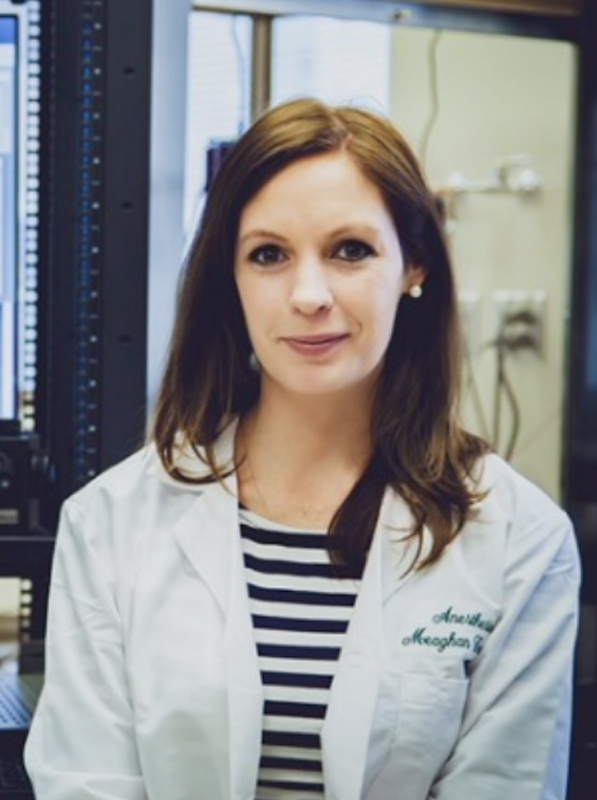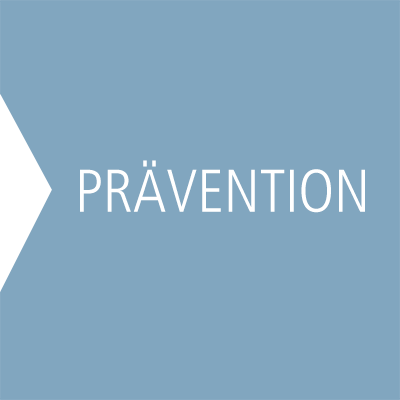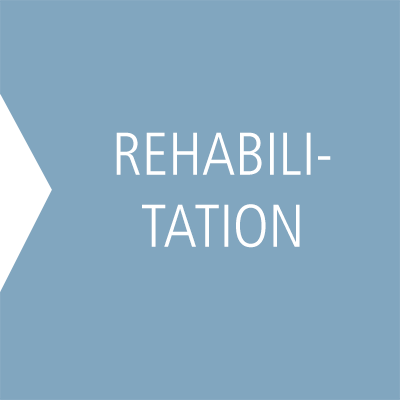FORSCHUNG 2021
– geförderte Projekte
Cross-talk of neuronal ensembles in reward-seeking processes

Central Institute of Mental Health Mannheim
Institute of Psychopharmacology
Anita C Hansson, PhD
Head, RG Neuroanatomy
Our daily life activities are driven by rewards which can be conditioned to specific stimuli and environmental contexts. Reward-seeking processes depend on the formation of reward learning, conditioned associations that persist over time, and lead to changes of distinct subsets of neurons – so called neuronal ensembles – within the extended reward system.
In this project we want to characterize functional ensembles in natural reward (saccharin)-seeking and alcohol-seeking processes in rats. Our behavioral paradigm involves a sequence of specific operant components: presentation of an occasion setter (tone) → presentation of a cue light → lever presentation → lever response. We assume that each operant component is encoded by a specific neuronal ensemble and therefore a sequence of activated neuronal ensembles (meta-ensemble) encodes for the entire behavioral sequence of this reward-seeking task. The cross-talk of these neuronal ensembles will be analyzed at an anatomical and functional level within the prefrontal cortex and adjunct brain sites. We will use CaMPARI as a novel in vivo neuroanatomical approach which generates calcium-dependent neuroanatomical “activity snapshots” of activated neuronal ensembles. The results will be validated by a new optogenetic tool, which allows selectively modifying neuronal ensembles with improved temporal control and specificity.
Our approach will give insight into the function of a meta-ensemble, namely the interaction of distinct neuronal ensembles of a reward-seeking task – an important mechanism of information processing during a complex behavioral task.
The effects of social distancing on alcohol consumption in at-risk individuals

Karlsruhe Institute of Technology
Chair of Applied Psychology | Department of Sport and Sport Science
Dr. Markus Reichert (Principle Investigator)
Prof. Dr. Ulrich Ebner-Priemer (Co-Principle Investigator)
markus.reichert@partner.kit.edu
Scientific abstract
The COVID-crisis poses enormous challenges to humankind with social distancing as a central measure to prevent infections. However, social distancing might increase risk in people prone to alcohol abuse. Panic buying of alcohol increases the availability of problematic substances at home, and high levels of distress and anxiety during the COVID-crisis combined with myths of alleged infection prevention by alcohol consumption can increase the risk of losing control over drug intake.
To research the effects of social distancing on problematic alcohol use, we plan an add-on to a large-scale longitudinal study currently running in Germany: the TRR 265 “Losing and Regaining Control over Drug Intake.” Within the TRR 265, we developed a cutting-edge mobile research infrastructure to investigate psychological and environmental modulators of disease dynamics in daily life: 900 participants at risk of alcohol use disorder are monitored across 365 days, measuring alcohol intake, psychosocial functioning (mood, impulsivity, cues, etc.), physical activity, and geospatial mobility.
However, information on social distancing and quarantine measures are not assessed, thus far.
We aim to implement a system to receive regular, reliable information about the TRR-participants’
current exposure to social distancing and quarantine measures with repeated assessments every month (e.g., setting up a questionnaire battery, applying for ethics approval, implementing regular phone calls, monitoring compliance, and analyzing data). This add-on offers a unique chance to provide solid evidence of social distancing and other legal measures on alcohol consumption and can inform future interventions. The TRR 265 guarantees continuity beyond the two years of funding.
Lay summary
The COVID-crisis leads to mandatory social distancing measures. How these measures affect people prone to alcohol abuse is unknown. We aim to add-on to a large scale study (900 participants at risk for alcohol intake are monitored across 365 days) to research the effects of social distancing on drinking behavior.
Developing a novel deep brain stimulation protocol to treat opiate-dependence

Washington University School of Medicine
Department of Anesthesiology, Biomedical Engineering, Psychiatry and Neuroscience
Assistant Professor Meaghan C. Creed, PhD
While opioids are frequently prescribed to bring relief to patients suffering with chronic pain disorders, they are also associated with high abuse liability. Tens of thousands of overdose deaths annual can be attributed to prescription opioids and this frequently occurs in patients with underlying pain conditions. This is significant, as chronic pain can also induce plasticity within the brain’s mesolimbic reward system, which may enhance the reinforcing properties of prescription opioids. Despite this urgent need, there are no effective therapies for co-morbid chronic pain and opiate addiction. In this proposal, we will establish how co-morbid chronic pain induces plastic adaptations within specific cortico-striatal synapses, and whether this exacerbates prescription opioid seeking behavior in mice. We will leverage this understanding to develop a novel deep brain stimulation protocol to reverse synaptic adaptations in mouse model of co-morbid chronic pain and oxycodone dependence, and whether this protocol can suppress drug-seeking behavior in chronic pain model. This project will provide the foundation for a novel neuromodulation therapies for co-morbid chronic pain and prescription opioid abuse.
The microbiomeof Patients with alcohol use disorder during withdrawal therapy

Medizinische Hochschule Hannover
Klinik für Psychiatrie, Sozialpsychiatrie und Psychotherapie
PD Dr. med. Alexander Glahn
Geschäftsführender Oberarzt
glahn.alexander@mh-hannover.de
In the last decade, an inflationary number of studies has published evidence on the use of probiotic supplements/drugs for the treatment and characterization of psychiatric diseases. The characterization of the microbiome in different mental disorders evolved to be a topic of great scientific interest. Microbiota seem to affect types of neuroinflammation that are associated with alcohol consumption. Hereby they influence central neurochemistry and behavior. Interestingly, some specific bacterial populations are altered in patients suffering from alcohol use disorder. In essence, bifidobacteria and lactobacilli are two bacterial families that show promising effects on the dysbiosis caused by alcohol consumption, as they are often found to be significantly lower in AUD patients when compared to controls. In different in vitro and in vivo studies on both animals and humans bifidobacteria and/or lactobacilli reduced the secretion of several interleukins such as TNFalpha and IL-8, IL-1beta or IL-10 production. Moreover, previous studies showed that Il1beta and Il-8 positively correlated with alcohol drinking amount and craving. Based on the evidence we derived the hypothesis that interleukin IL-1-beta and Il-8 are associated with craving during withdrawal in alcohol dependent patient and linked to different bacterial taxa and functions in the patients’ microbiome. Also, we hypothesize that changes in microbiota are correlated to changes in liver function and interleukins parameters as well as craving. Apart from that, we hypothesize that the composition of the patients‘ microbiome in combination with clinical and laboratory data can be used as a prognostic factor for relapse probability.
Optimization of AUDs treatment success: possible identification of predictors for clinical efficacy of acamprosate treatment

Albertus-Magnus Universität zu Köln
Department der Biologie
Institut für Zoologie
Prof. Dr. rer. nat. Henrike Scholz
Genome wide association studies for alcohol use disorders (AUD)s implicate several candidate genes for the susceptibility to develop AUDs. These genetic alterations might also influence the relapse rate and the effectiveness of treatment with the anti-relapse drug acamprosate. To test whether a subset of candidate gene associated with the pre-disposition to develop AUDs also influence the effectiveness of acamprosate treatment, we want to address whether mutations in the candidate genes also influence acamprosate efficacy. We will use the genetic model system Drosophila melanogaster. The fruit fly Drosophila is an excellent model system, since flies share behavioral and mechanistic similarities to humans in response to ethanol. Flies prefer to re-consume ethanol after a withdrawal and the application of acamprosate reduces this preference. We propose to perform a pilot screen analyzing the neuronal function of five candidate genes – involved in the regulation of cellular stress responses – in the regulation of ethanol re-consumption after withdrawal and their possible interaction with acamprosate. We focus on the analysis of cellular stress genes, since acamprosate also acts as neuroprotective agent. We next test whether acamprosate influences other cellular stress responses to develop a test system to screen for genes that influence acamprosate treatment. These experiments might also identify neurotransmitter systems involved in regulating ethanol re-consumption after withdrawal. Taken together this approach opens up the possibility to develop predictor for the efficacy of acamprosate treatment and to uncover the molecular mechanisms underlying the regulation of ethanol re-consumption after withdrawal and the action of acamprosate.
Short lay summary:
The relapse rate of patients with AUDs is with 85% relative high. The anti-relapse drug acamprosate significantly improves rate of abstinence. However not all patients respond to this treatment. The question arises whether this is due to genetic differences and whether genotype-specific treatment of patients could potential improve treatment outcome.




